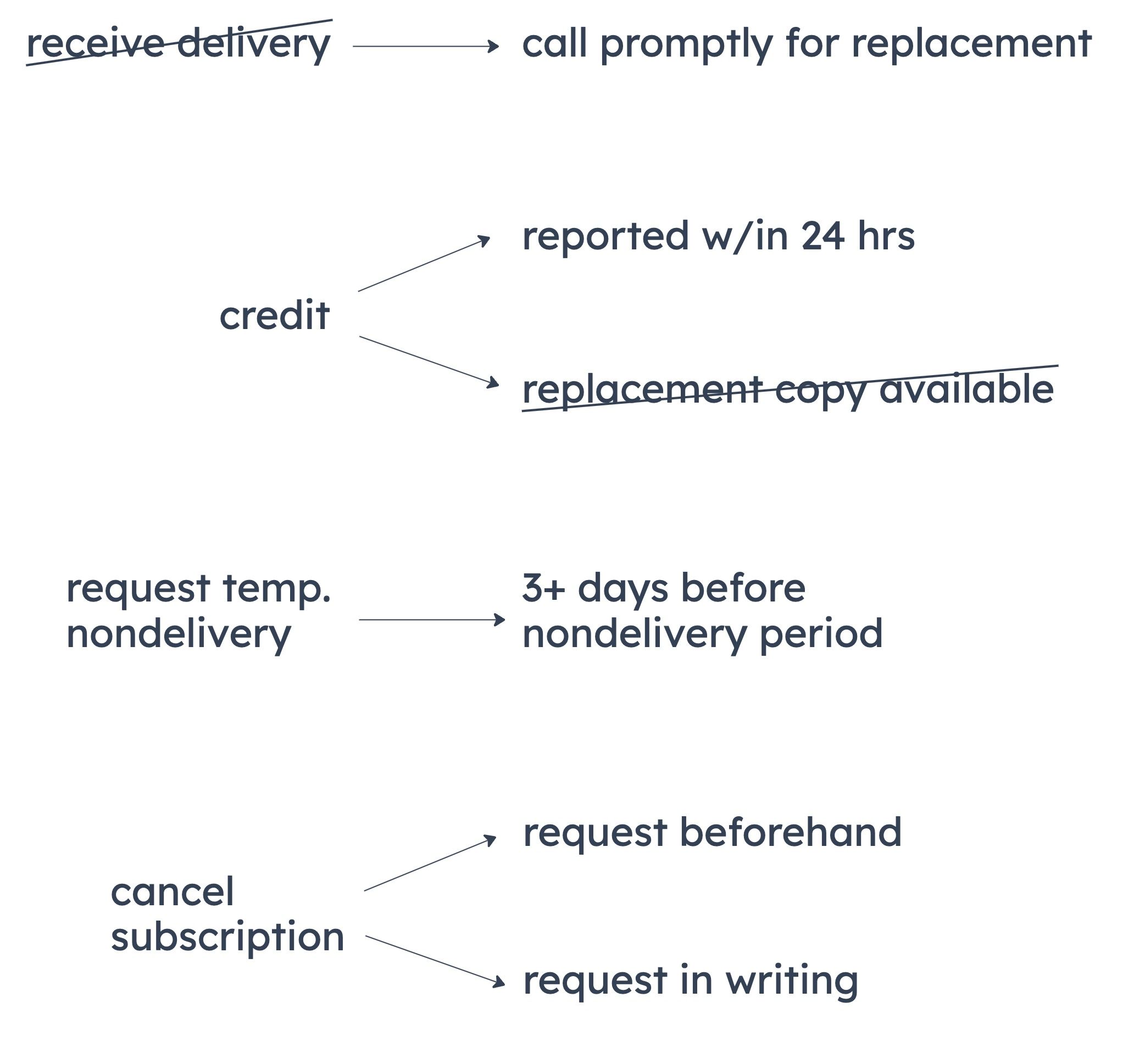Notice to subscribers: In order for us to provide you with efficient and reliable newspaper service, please note the following policies. You will be billed for home delivery every four weeks, in advance. If you do not receive delivery, call us promptly to receive a replacement copy. Credit can be given only if the missed copy is reported to us within twenty-four hours and only if a replacement copy is unavailable. Request for temporary nondelivery must be made at least three days prior to the first day on which delivery is to stop. No subscription will be canceled unless the subscriber explicitly requests the cancellation beforehand and in writing.
The Daily Gazette
Summary
The stimulus can be diagrammed as follows:

Notable Valid Inferences
This is a MBT Except question. For this question, all the wrong answers must be true (i.e., the denials can be justified), and the right answer must be false (i.e., the denial cannot be justified). We are looking for an answer choice that describes a subscriber who fulfilled all the requirements to be granted their request but was still denied.
A
Mr. Rathanan did not send in his advance payment two weeks ago; he states that his inaction was intended as cancellation and requests that he not be charged for the past two weeks of delivery of The Daily Gazette.
This denial is justified. A written request must be made beforehand to cancel a subscription, and Mr. Rathanan did not fulfill this requirement. We can also see this relationship by taking the contrapositive of the last conditional statement in the stimulus.
B
Dr. Broder called The Daily Gazette Monday morning to report that her Sunday edition had not been delivered; she requests credit instead of the offered replacement copy.
This denial is justified. A credit will only be offered if a replacement copy is unavailable. Because a replacement copy was available, a credit cannot be offered. We can also see this relationship by taking the contrapositive of the second conditional statement in the stimulus.
C
The Daily Gazette was delivered to Ms. Herrera during her one-week vacation even though she called on a Wednesday to stop delivery the following Monday for the entire week; she requests credit for the full week’s delivery.
This denial is not justified. Ms. Herrera requested temporary nondelivery more than three days before the first day she wanted delivery to stop, fulfilling the requirements for requesting temporary nondelivery. Based on the stimulus, there is no reason for her claim to be denied.
D
Although Ms. Jackson telephoned The Daily Gazette at the beginning of June requesting that her subscription be canceled on June 30, delivery was continued until July 3 when she called to complain; she requests that she not be charged for the papers delivered in July.
While Ms. Jackson did request her subscription be cancelled in advance, she did not make this request in writing. Therefore, the denial is justified. We can also see this relationship by taking the contrapositive of the last conditional statement in the stimulus.
E
Ms. Silverman was out of town on Sunday and Monday and when she returned on Tuesday she found that her Sunday edition had not been delivered; she called The Daily Gazette on Tuesday afternoon requesting credit for the undelivered copy.
This denial is justified. As we can see from the second conditional statement in the stimulus, a missing copy should be reported within 24 hours. Ms. Silverman failed to meet this condition, which implies the denial is justified.